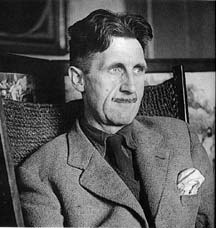A God-fearing Christian Nation?
Perhaps one of the most irritating espousals frequently heard these days is that our system of government was founded on “Christian Principles”. In fact, it is said so often and with such authority, that it is rarely questioned. While the United States, like the rest of the western world, is heavily influenced by something we obliquely refer to as the “Judeo-Christian” tradition, its origins lie more in the Enlightenment with its emphasis on the rationalism and empiricism of John Locke and David Hume, not to mention Adam Smith, than the parables of Jesus.
As for our “God-fearing” Founding Fathers – there does not seem to be much enthusiasm for a godly or Christian state. It might be mentioned, that if these men were to walk among us today they would be labeled “secular humanists”; which, by the way, was exactly what they were. At the very least, most of these men were agnostics, some were no doubt atheist. But, enough of my opinions; let them speak in there own words.
Thomas Jefferson said, “Our civil rights have no dependence on religious opinions, any more than our opinion in physics and geometry.” And if that is not enough to cause apoplexy among the cousin-lovin’ crackers for Christ, Jefferson went on to state; “Question with boldness even the existence of a God; because, if there be one, he must more approve of the homage of reason, than that of blind-folded fear.” No god-fearing here!
In 1797, our second president, John Adams, signed the Treaty of Tripoli (along with the majority of the senate), stating that “The government of the United States is not in any sense founded on the Christian religion.” In a 1756 letter, he wrote: “This would be the best of all possible worlds, if there were no religion in it.”
James Madison, later to be our fourth president, was forthright in his argument: “Religious bondage shackles and debilitates the mind and unfits it for every noble enterprise…the legal establishment of Christianity [results in] superstition, bigotry, and persecution.”
Thomas Paine, author of “Common Sense” and credited with rallying the colonists in their darkest hour, rejected all denominations of Judeo-Christian faith, saying, “I disbelieve them all.”
But, what about good, old, honest Ben Franklin? Surely, he was a god-fearing Christian? Well, this was his assessment, “The way to see by faith is to shut the eye of reason: The Morning Daylight appears plainer when you put out your Candle.”
Ethan Allen, the leader of the Green Mountain Boys and hero of the Revolution, was straightforward in his writings, “I am not Christian.” Years after his death the Reverend Nathan Perkins wrote in his diary, "Arrived at Onion River falls and passed by Ethan Allyn's grave. An awful infidel, one of Ye wickedest Men Yt ever walked this guilty globe. I stopped and looked at his grave with a pious horror."





1 Comments:
You are quote mining.
Example, John Adams... "This would be the best of all possible worlds, if there were no religion in it.""
The full quote,
"Twenty times, in the course of my late reading, have I been upon the point of breaking out, 'This would be the best of all possible Worlds, if there were no Religion in it,'!!! But in this exclamation I should have been as fanatical as Bryant or Cleverly. Without Religion, this World would be Something not fit to be mentioned in polite company, I mean Hell."
-- letter to Thomas Jefferson, April 19, 1817
What a change, eh?
Compare Jeffersonian philosophy to the socialist French Revolution,
"God who gave us life gave us liberty. And can the liberties of a nation be thought secure when we have removed their only firm basis, a conviction in the minds of the people that these liberties are of the gift of God? That they are not to be violated but with His wrath? Indeed, I tremble for my country when I reflect that God is just; that His justice cannot sleep forever."
Thomas Jefferson,
In his Notes on the State of Virginia
Here is a good overview from the Library of Congress that can correct a lot of disinformation from the atheists, socialists, judicial diktats, etc., on this. And it is ironic that the Library that Jefferson founded would protect his words from that "...subtle corps of sapper and miners..." the Judiciary. In whose hands the Constitution can become a "...thing of wax..." as he put it. From the Library:
"Within a year of his inauguration, Jefferson began attending church services in the House of Representatives [note: he started attending 2 days after writing the famous 'Danbury Letter
which contains the phrase concerning separation of Church and
State']. Madison followed Jefferson's example...."
The Library of Congress
Post a Comment
<< Home